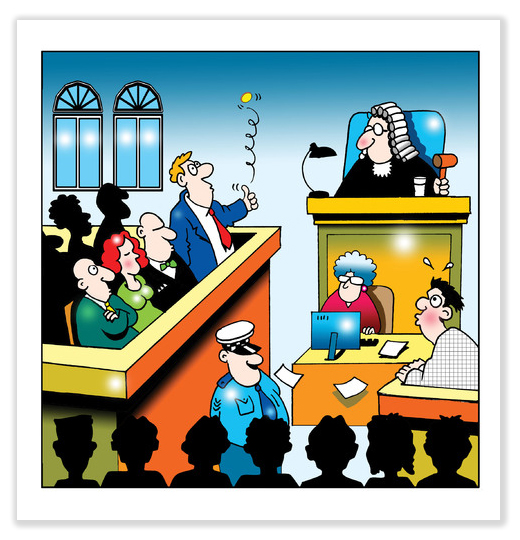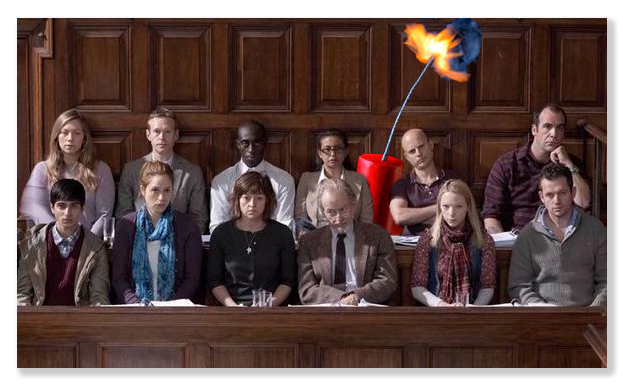We post news and comment on federal criminal justice issues, focused primarily on trial and post-conviction matters, legislative initiatives, and sentencing issues.

BLOWING UP THE JURY
 Simon Brewster was on trial in state court for bank robbery. The jury went out, but reported to the judge a few hours later that it was hopelessly deadlocked 9-3 for conviction. The judge gave the jury the Allen charge, known colloquially as the “dynamite charge,” which pressures the jurors to reach a decision by continued deliberation by appealing, essentially, to their desire not to have wasted their and the court’s time.
Simon Brewster was on trial in state court for bank robbery. The jury went out, but reported to the judge a few hours later that it was hopelessly deadlocked 9-3 for conviction. The judge gave the jury the Allen charge, known colloquially as the “dynamite charge,” which pressures the jurors to reach a decision by continued deliberation by appealing, essentially, to their desire not to have wasted their and the court’s time.
The jury remained deadlocked, and the judge gave another Allen charge, two additional admonitions that the jurors must continue deliberating, and finally, another long charge that included instructions to keep on deliberating. That lengthy charge emphasized that the jurors had taken an oath to follow the law, which meant they must deliberate more. The judge ended his instructions with the challenge that he had taken his oath seriously and hoped they would do the same.
Shortly thereafter, when told that the one juror who wouldn’t vote to convict was doing crossword puzzles, the judge ordered all the reading materials taken out of the jury room. That tactic turned out to be effective. The jury convicted 20 minutes later.
 Last week, the 11th Circuit granted Simon’s habeas corpus motion, holding that his lawyer was asleep at the switch for not objecting to the court’s strong-arming the jury. The 11th decided that even if Simon could not prove that judge would have granted a mistrial if he had been asked to do so, Simon was prejudiced. “An assessment of the likelihood of a result more favorable to a defendant must exclude the possibility of arbitrariness, whimsy, caprice, nullification, and the like,” the Circuit said. “It does not matter for prejudice purposes whether the judge at a defendant’s trial would have sustained an objection; what counts is whether the judge would have been required to do so under the applicable law and, if so, whether doing so would have resulted in a reasonable probability of a different result.”
Last week, the 11th Circuit granted Simon’s habeas corpus motion, holding that his lawyer was asleep at the switch for not objecting to the court’s strong-arming the jury. The 11th decided that even if Simon could not prove that judge would have granted a mistrial if he had been asked to do so, Simon was prejudiced. “An assessment of the likelihood of a result more favorable to a defendant must exclude the possibility of arbitrariness, whimsy, caprice, nullification, and the like,” the Circuit said. “It does not matter for prejudice purposes whether the judge at a defendant’s trial would have sustained an objection; what counts is whether the judge would have been required to do so under the applicable law and, if so, whether doing so would have resulted in a reasonable probability of a different result.”
Brewster v. Hetzel, 2019 U.S. App. LEXIS 1931 (11th Cir. Jan. 22)
<><>
– Thomas L. Root

